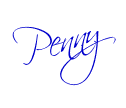Ruth Beechick's book continues to help me think about how skills and functions develop. I have been pondering on her words about how concepts of math develop in her book, "The Three R's", thoughts I happened to find on a web site about preschool math (so I'll provide the link for you in case you're interested).
from http://www.shirleys-preschool-activities.com/preschool-math-activities.html
Children develop through three modes of thinking about numbers:
manipulative mode – working with real objects e.g. beans, cups, spoons
mental image mode – using mental images or pictures of real objects
abstract mode – using number concepts without thinking of images of objects
Which math program that includes manipulatives as part of the program is the right program for us?
or
or
?
That is the question.
I welcome opinions and experiences from you.


4 comments:
Penny I am getting through the three R book (upon your suggestion). A great find I think. Thanks!
ZILLO?? not even going to LOOK to see what that is because..I DO NOT NEED ANOTHER MATH PROGRAM. I HAVE BOTH MUS, RS, AND 4 OTHERS...
personally, knowing you, i think you would like RS better because it is more RDI adaptable..
We've tried both MUS and RightStart, and liked MUS much better. My son focused much better on the video screen instruction in MUS than he ever would have on me giving instruction. I would watch with him, of course, so I would know exactly how it had been explained, if he had any questions on the worksheets.
RightStart used a lot of games for repetition and mine *hated* games. Every MUS worksheet/test is structured the same and is very predictable (another good thing). Easy to do as many worksheets as needed per lesson, but no more (when math takes that much concentration, you don't want to do any more than is necessary). And finally, I really liked that MUS will continue to put a question from previous lessons on subsequent worksheets/tests for months (sometimes years!), helping to maintain that skill. Otherwise, my son would have learned the lesson, and promptly forgotten it 3 weeks later.
When you get to basic math facts (add/subtract/mult/divide) you will need to do further practice work using other methods, but there is no need to have them not move forward when ready for the concepts. Use the blocks to calculate, use charts, and eventually, use a calculator.
Rachel
I'm trying RS with Pamela this year. She will be doing the final level, Intermediate and I am very impressed. It requires things that I know she will enjoy: drawing, building polyhedral solids, inferring patterns, etc. It will ground her in concrete ideas that lead up to algebra and geometry. I plan to try Jacob's algebra and geometry after that.
MUS is good at teaching mechanics in the high school years. It transitions too fast from concrete thinking to mechanics. My typical son memorized the pattern but could avoid understanding and reasoning most of the time. He went all the way through Algebra II, took Precalculus in public school, and attended ACT prep classes and did not do very well on the math portion because of his lack of reasoning.
I can imagine that an autistic child would pick up on the predictability of MUS and avoid heavy duty reasoning like my son did. I think RS is more ripe for apprenticeship and guided thinking when they are stuck.
He wants to improve his score and retake the ACT in the fall. I have assigned only the reasoning problems from the Jacob's books and he is starting to like thinking! It engages him by giving him little reasoning problems to think through and the text is written for the student in a readable style. He wishes we had done Jacob's for high school now that he has finished the first chapter.
Post a Comment